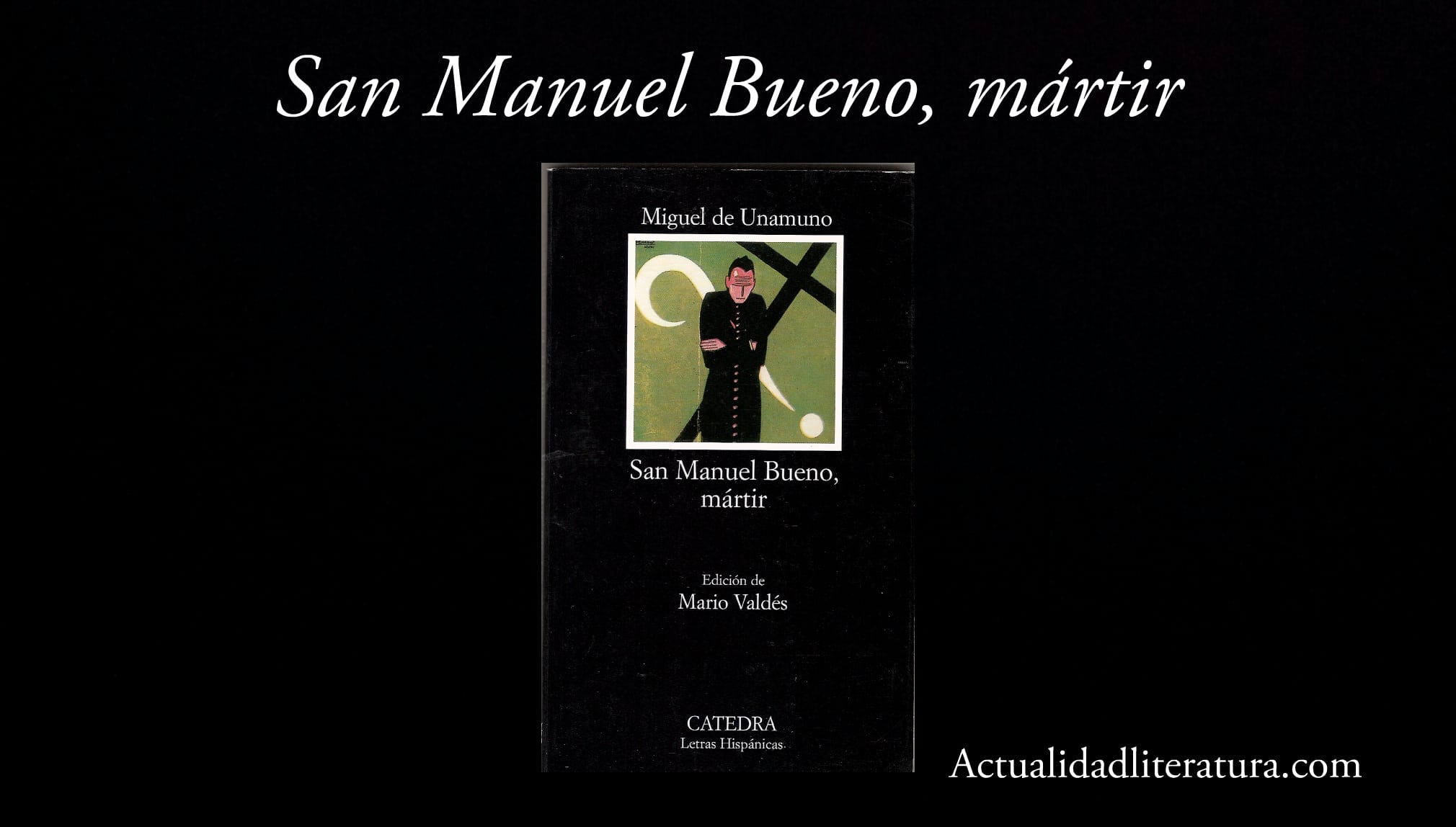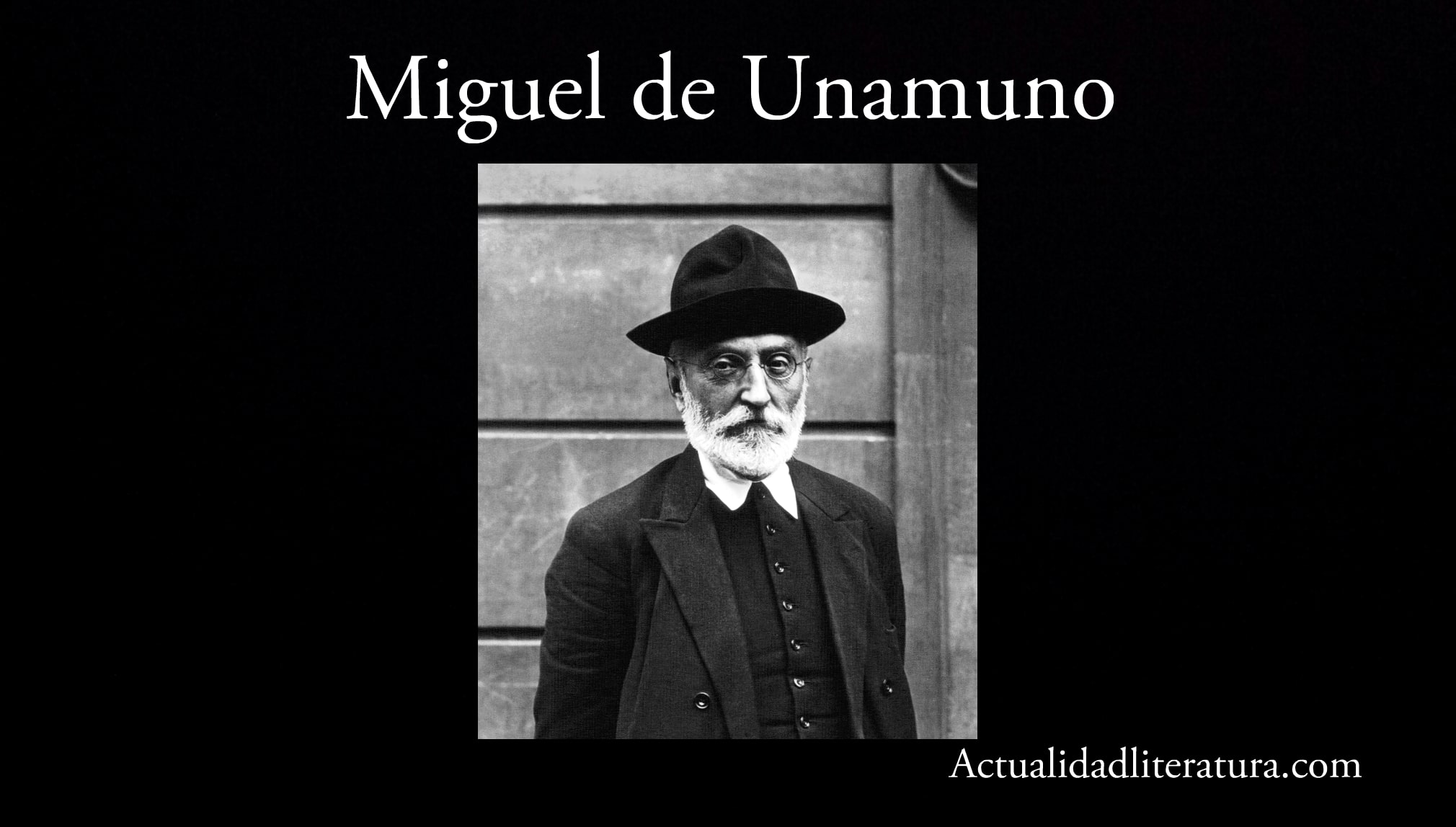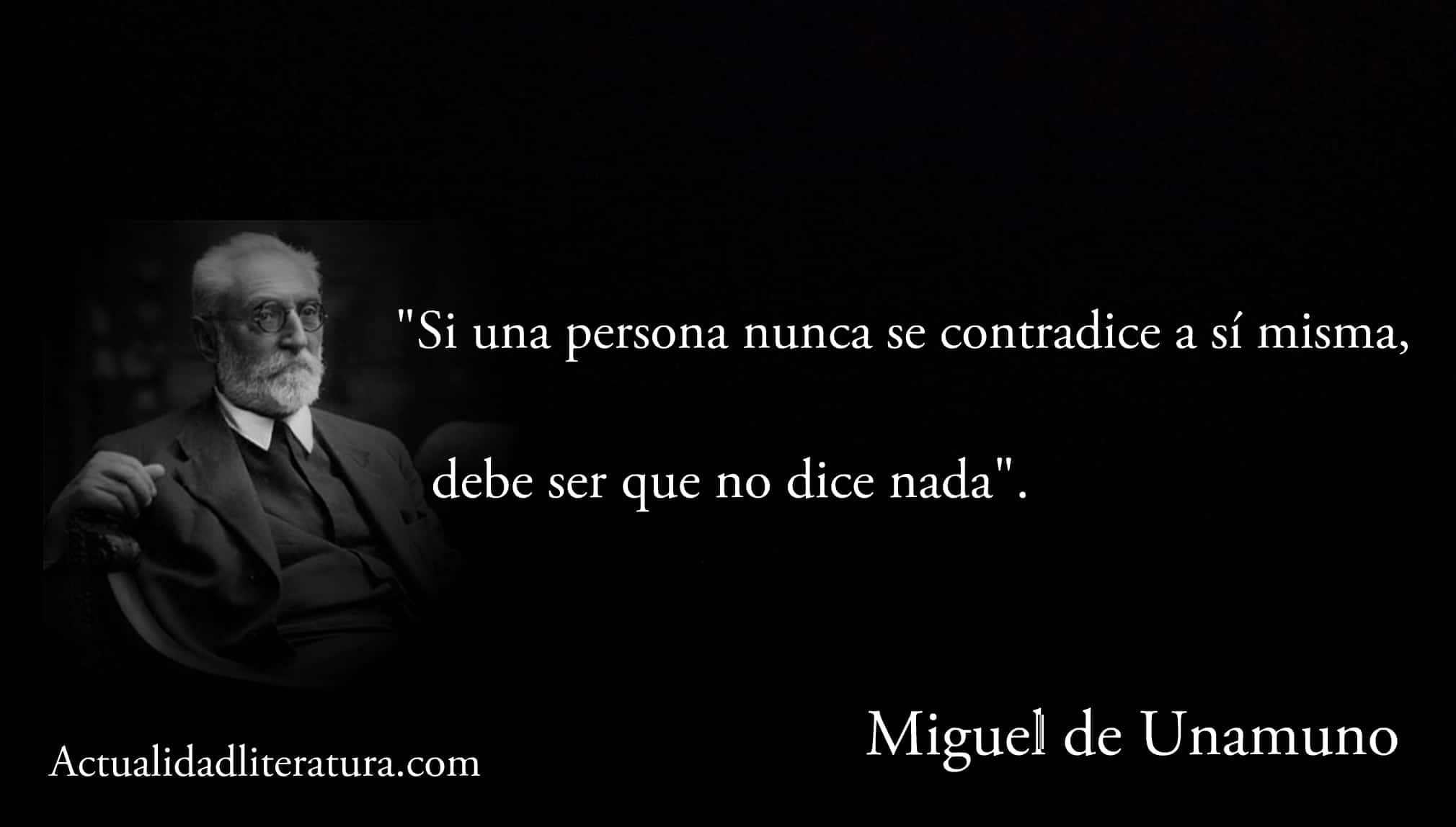
Saint Michael Good, martyr.
On May 13, 1931 it appeared published for the first time Saint Manuel Bueno, martyr, in the N ° 461 of the magazine Today's novel. It is a nivola that summarizes much of the characteristic features of the vast work of the philosopher and writer Miguel de Unamuno. The text reflects many of the concerns that constantly plagued an elderly intellectual.
These existential reflections are expressed through his main character, the priest. As well as the intention of the Basque writer to shake the conscience of his readers in order to incite them to a true spiritual search. After all, the confrontation between faith and reason became a permanent internal struggle in Unamuno.
About the Author
Miguel de Unamuno (Bilbao, September 29, 1864 - Salamanca, December 31, 1936) is one of the greatest references of the Generation of 98. His work shows an exalted mastery of different genre styles such as essays, novels, poetry and performing arts. At the University of Salamanca he was Professor of Greek, he was even Rector, but he was dismissed for political reasons.
He went into exile in France during the dictatorship of Primo de Rivera. Upon returning to Spain, he again held the rector's office. After its launch in 1931, Saint Manuel Bueno, martyr was published under the Espasa Calpe label along with two more stories in 1993. These two complementary stories are equally dominated by the existentialist themes that most interested Unamuno.
Unamuno's personality, style and thought
His tough temperament contrasts somewhat with a rather distressing perception of life, framed in a permanent philosophical deliberation. In the same way, the finite condition of the human being was a frequent idea in his lyrics, marked by a lively and precise style, without frills. All expressed in a rustic, expressive prose, charged with antithesis, used to reveal his inner universe.

Miguel de Unamuno.
Moreover, his position on Spain and Europe is a sign of his eventual extremism. In his first decades of life, Unamuno saw it necessary to "Europeanize Spain", due to the backwardness of the Iberian nation with respect to the continent. But towards the end of his life he considered it more imperative to “Spanishize Europe”. With this he thus abandons the once acclaim for European progress.
Argument from Saint Manuel Bueno, martyr
Ángela Carballino is the editor of the story of Don Manuel Bueno, the plebano of the small town where she lives, Valverde de Lucerna. A succession of events causes the parish priest to be considered "a living saint, made of flesh and blood" and an exact archetype of a servant of God. With unconditional love and dedication to comfort the most vulnerable, helping "everyone to die well."
One day Angela's brother, Lázaro, a freethinker with an anti-clerical tendency, returns to town. Although Lázaro's initial antipathy towards Don Manuel quickly turns into admiration after feeling his self-denial. But the priest has a hidden side: he certainly does not believe in Him. He longs for eternity, but his lack of faith makes it impossible for him to understand the resurrection of the flesh.
The justification
Don Manuel confesses his secret precisely to Lázaro and this one to Angela. He explains his feigned behavior in his intention to preserve "peace among the faithful." He prefers to maintain the comforting dogma of an afterlife existence among the parishioners so as not to disturb them. Then, Lázaro decides to resign his progressive ideas, pretends to convert and collaborates with the father's mission.
After a few years, Don Manuel dies - still without regaining his faith - with sufficient merits to be beatified. Only Angela and Lázaro are the only ones who know her secret. Finally, when Lázaro dies, Angela ends up wondering about the redemption of her loved ones.
Philosophical theories
In general terms, Miguel de Unamuno's literary creations are clearly existentialist in character. It explores the subjectivity of human freedom from an individualistic vision, where everyone is responsible for their own decisions. Therefore, a Unamunian man does not suggest everything to a previous entity capable of putting or predestining his path.
Parallels between Unamuno and his protagonists
The character of Don Manuel wishes to believe in eternity and redeem himself in his faith, for he fears his mortal condition. In the same way, Unamuno was congruent with his thought of transcendence through his actions, experiences and dedication to others. But the suspicion derived from reason always appears as a great inescapable slab on his spiritual path.
In the end, that religious affliction is overcome by Unamuno himself in the twilight of his days by a rational agnosticism instead of an absolute one. At this point, salvation would be available to those who long to reach God. For this reason - despite dogmatic doubts - the biblical allusions (whether direct, textual or indirect) are very relevant in the work.
A question of identity?
The names chosen by Unamuno in Don Manuel Bueno, martyr denote the roles of each character in the text. Angela - Angel is the messenger. Don Manuel - Emmanuel, the savior. Lazarus, is alluded to in a similar way to the biblical figure (who abandons his pragmatism to devote himself to a religious life). Even the landscapes of the town, the lake and the hill have been personified, they have a soul.

Quote by Miguel de Unamuno.
Don Manuel lives submerged in a constant identity dilemma, the inner self against the public identity constructed for others. However, thanks to the priest, the parishioners feel that there is not a single reason to waver in faith. The faithful do not doubt that they are on the right track. They are sure they have been saved.
Saint Manuel Bueno, martyr: a masterpiece in every sense of the expression
The possibility of sanctification becomes the vehicle towards the immortality of Don Manuel. In consecuense, the actions of the main character take on an everlasting relevance as they are enshrined in unconditional love. A minor and selfless sacrifice compared to a truly worthwhile consequence: the tranquility of the village residents.
Therefore, Unamuno's genius is evident when he portrays the great contradictions of the human being in such a fluid way. With an approach in favor of spirituality as one of the fundamental axes of civilization and progress. It is doubt as a crucial element of spiritual growth and spirituality as an indispensable part of modern humanity.